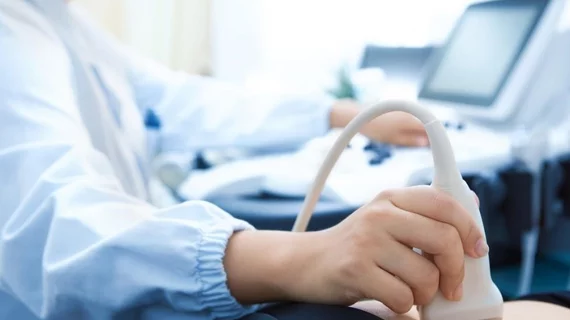Emergency physicians offer cash for insights into ultrasound’s COVID-19 role
Imaging COVID-19 patients in busy urgent care clinics and emergency departments has proven challenging for physicians across the globe, grappling with scarce CT scanners and nonspecific chest x-rays. And the conundrum now has one doc group offering cash for research to help its members on the pandemic’s front lines.
The American College of Emergency Physicians announced Tuesday, April 14, that its foundation is offering $100,000 for research on COVID care. ACEP suggested a dozen possible topics, including diagnostic radiology—and in particular, point-0f-care ultrasound—for grant recipients to explore.
"Emergency Medicine Foundation-sponsored research has been defining and refining the practice of emergency medicine for almost 50 years, and it is imperative that we act immediately as new threats, like COVID-19, arise," David Wilcox, MD, chair of the foundation’s board of trustees, said in a statement.
Lung US has emerged as a useful tool to help harried ED docs to quickly triage patients with coronavirus patients who have developed severe pneumonia. To aid in the technology’s use during the pandemic, Italian clinicians recently offered international standards that detail disease scoring, data sharing and device selection.
ACEP offered several other possible topics relevant to radiology researchers, including personal protective equipment, telemedicine, and rapid screening. You can find the request for proposals here. Studies must be led by a United States-based emergency physician, with applications due June 5.

